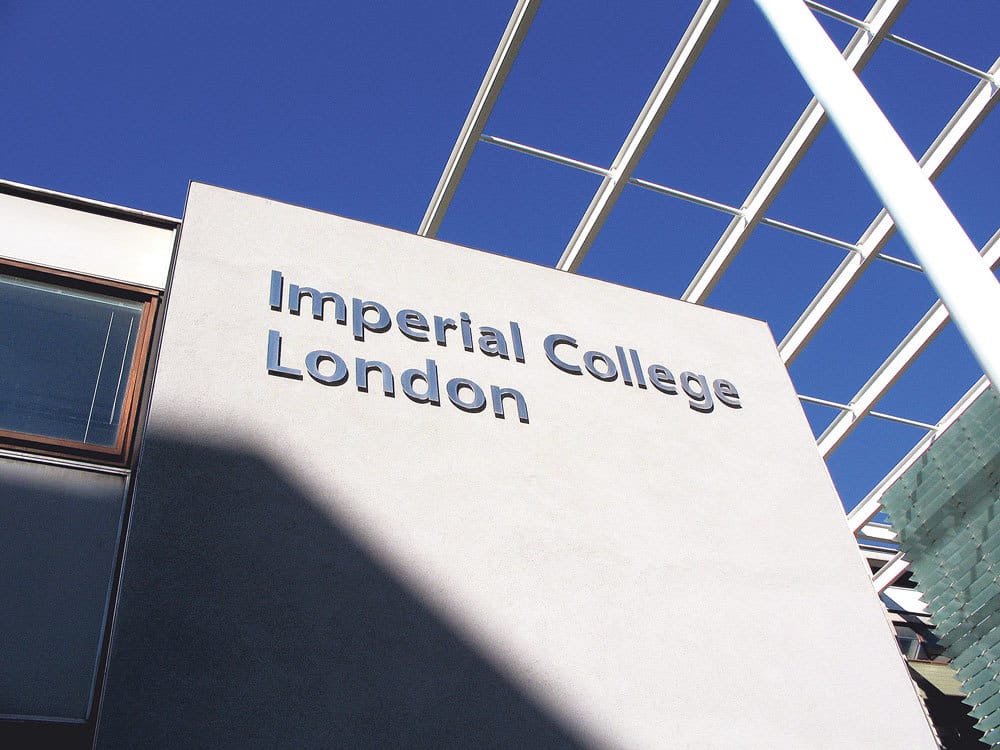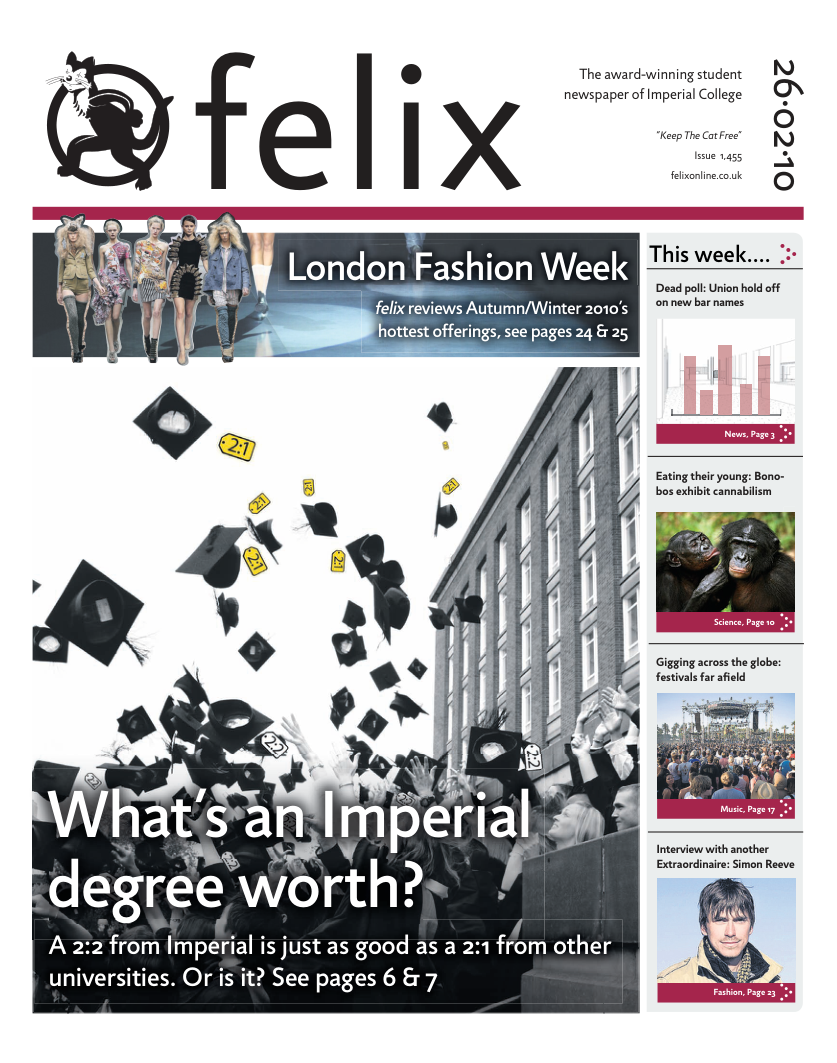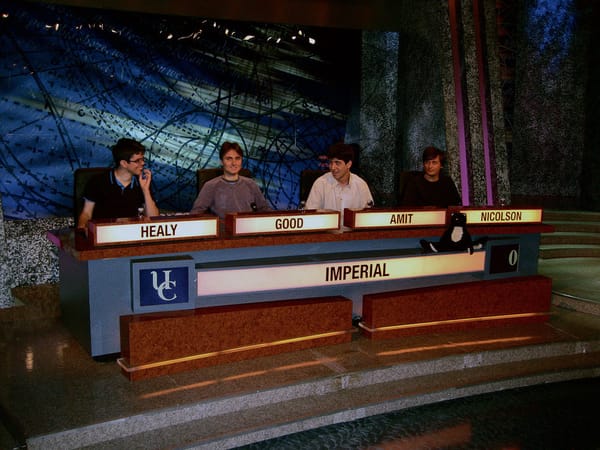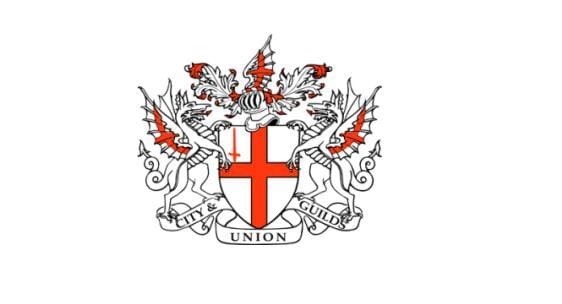Worth the Effort
Does Graduation with a lower second class degree consign you to a life of un employment? Is a 2:2 from Imperial worth just as much as a 2:1 from other insutitutions? Dan Wan Investigates

It has long been instilled in many a student’s mind that they should be coming out of University with at least upper second class honours if they’re to make the leap to employment afterwards. They say without a 2:1 in your respective degree, you’re destined to life in a dead-end job, and failing that, unemployment. Whilst others continue to fly high, you remain on the dole. Whether you believe the urban myth that surrounds not receiving a 2:1 or not, there is undoubtedly a stigma that drags along with not getting one.
But does ‘2:2’ stick out like a sore thumb on your CV? More importantly, does it immediately make you a less favourable candidate for a job? Seemingly not.
Pricewaterhouse – Coopers (PwC), one of the UK’s largest accountancy firms and graduate recruiters, have recently announced a new programme that looks for “inspired talent”. The necessity of a 2:1 is abolished, and the focus for PwC’s graduate hunting is now on an individual’s impressive ability and extra-curricular activity. This seemingly opens the door for students who look set to graduate with that dreaded lower second class honours only.
Sonja Stockton, head of graduate recruitment for PwC, told the Financial Times that whilst people didn’t achieve the normally-required 2:1, “they were doing extraordinary and enterprising things” during their time at University that may have compromised academic achievement, but still added value of employability. An example cited was the starting of a charity whilst studying.
She continued: “We wanted to create an opportunity and a window for exceptionally talented students who have demonstrated exceptional achievements beyond the academic.”
The move has been welcomed by many at the best universities, where many students find there is a fine balance between academically-achieving and fulfilling a recreational and interesting extra-curricular life. It is a balance that countless numbers of students at Imperial cannot find. Whilst the ones that work on their degrees more than they fill their CVs with anything else tend to be favoured, PwC can now look forward to those students who are arguably better equipped to apply themselves to a wider variety of situations and challenges. Ms. Stockton highlighted their new recruitment scheme also addressed the inequality of standards and quality of a 2:1 degree across the UK’s varying universities. She illustrated the point by interestingly singling out Imperial College students, claiming that they stood a worse chance of achieving that gold standard 2:1 than if they attended a less reputable institution.
Many other large graduate recruiters are following suit and are becoming increasingly lenient on the 2:1 ‘floor’ that the majority of companies have imposed on their recruitment drives. Unilever, ones of Europe’s leading pharmaceutical companies, has stated that graduates without a 2:1 “were not ruled out” completely. If they had “really great work experience, drive, energy and commercial awareness” things could still look up for them.
It has been reported that in the last few years that employers accepting graduates on a 2:2 degree has risen, despite the economic downturn skewing the market in favour of recruiters rather than job-hunters. A third of employers surveyed by the Association of Graduate Recruiters (AGR) in 2008 were said to be looking at applicants with a 2:2, compared to a quarter the year before. However, felix investigates if graduating from Imperial does make a difference. Should Imperial graduates be given more slack from employers? Do employers even notice the fact you’re from the 5th best university in the world? Does it even matter what degree classification you enter the big, wide world with?
The 2:1 Floor
With over 60% of graduates hitting the gold standard of a 2:1 classification or better, graduate recruiters are now having a tough time sifting through the thousands of homogenous applications, even with a ‘2:1 floor’ as part of preliminary requirements.
It has long been accepted that if you are not above the 2:1 floor, you’re simply not in the room. Some might even say dead and buried in the ground. Puns and word play aside, companies like PwC and Ernst & Young are have stated that this 2:1 floor is “flexible”, and that applicants will now have to demonstrate other features of their ability that go beyond an academic record.
Intuitively, by dropping the requirements needed for a job, the employers stand to receive even more applications than they do already. However, by doing this they also broaden the available talent pool and are able to recruit the applicants with skills and disciplines specific to their sector.
Carl Gillead, chief executive of the Association of Graduate Recruiters pointed out the potential risks of using the tried and tested method of a 2:1 floor.
“There is a growing awareness that graduates have other things to offer. If you use a hard and fast cut-off at 2:1 you might miss out,” he said.
Sector-specific skills may not necessarily come from achieving a 2:1. Even if some of these skills can be attained during a certain degree course, employers understand it is not guaranteed on courses at less reputable universities. Rebecca Fielding, talent manager at HJ Heinz highlighted the suspected inequality in degree standards in British higher education.
‘The majority now have a first or 2:1,’ she correctly states. ‘Quality standards across universities and subjects are also completely incomparable, so the grade is not necessarily correlated to academic capability of the candidate.
Jonathan Silver, Deputy President (Education) of Imperial College Union is in charge of representing the academic needs of the College’s students and agrees that this rings very true for graduates receiving their degrees from Imperial.
“At Imperial a 2.2 is not only perfectly respectable, it is arguably academically equivalent to at least an upper second from many institutions.” He continues that highly-regarded institutions are almost impermeable to unsavoury tactics that are skewing the statistical surveys used by employers. He states that “Imperial is culturally opposed to the ‘degree inflation’ phenomenon, and there is no inclination among departments to align assessment standards with those from competing institutions, so assessment standards remain extremely high.”
Many institutions have been publically criticised for urging their academics to keep up with targets in awarding upper class (1st or 2:1) degrees to their students. In 2008, an email sent to the Mathematics department at Manchester Metropolitan University (MMU) was leaked into the public. MMU are ranked 90th in the Times Good University Guide 2010.
Mr. Silver compares the equivalent situation at Imperial, ranked 3rd in the same guide, where Imperial have set targets of 70% of students achieving a 2:1 or better, but only 57% did so. “It is particularly noticeable with the Mathematics BSc/MSci, where only 21% of graduates achieved a first class and 36% achieved an upper second class degree in 2009, having enrolled in 2005/6 with AAB/AAA,” he states.
Talking to a Pricewaterhouse – Coopers Graduate Recruitment Advisor, she was certain in the fact that “the same standards still applied” as before. The new scheme was more to focus on individuals who have “an amazing story to tell”, and less on the fact that any graduates with 2:2 degree could apply. Most interestingly, when questioned how much weight the institution an applicant is graduating from holds on an application, she stated that whilst PwC looked at a full application completely, which university the graduate was from was “not particularly taken into consideration.” Instead, the emphasis was seemingly still on their academic record.
Quite clearly, the fact that PwC and other companies have begun to open up their programmes to applicants with a 2:2, he feels there is still some way to go in reaching out to many graduate recruiters who still use heavily depend on degree classification only.
“It shouldn’t be necessary for a competent, inspired applicant with a 2.2 from Imperial to prove that they have done ‘extraordinary and enterprising things’. It would be more appropriate to adjust for the standards required for each degree class at Imperial. It is, sadly, true that employers place far more emphasis on the degree class achieved than on the awarding institution,” he says.
Getting a 2:2 isn't the end of the world by any means.
In November 2008, then Union President Jenny Morgan and student representative Alex Grisman were invited to the College’s Strategic Education Committee meeting where they proposed a paper discussing the value of an Imperial degree. It said that the “respectable classification of a Lower Second” from Imperial ought to stand a “better chance of securing employment than it already does.” The suggested advancement on this point was to talk to the College’s careers service and urge them to press the point to major graduate recruiters; the companies most guilty of using a 2:1 cut-off point.
felix spoke to Elspeth Farrar, Director of the Careers Advisory Service, and she has seemingly listened to the suggestions put to her since then, and has been lobbying companies like PwC to give a lot more attention to the reputation of the institution applicants are applying from.
“We’ve tried to encourage companies to look for more than a degree classification. Looking at just that is limiting, but you can understand why they do it. They receive thousands upon thousands of applications.”
When asked what advice she would give to a student that is only on course for a 2:2 degree, her words were clear and simple. “Don’t panic!” she says. “There is a misconception that all graduate recruiters ask for a 2:1. In fact, at least 34% don’t even specify.” She continues to assure students on lower classifications that there are specialist and smaller companies not looking for a 2:1. “Engineering and public sector companies often require a 2:2, and smaller companies are more interested in the individual. Students with a 2:2 shouldn’t be thinking ‘life is over’ or anything.
Her advice to 2:2 gradutes is not to apply to jobs clearly stating a 2:1 requirement. “A lot of students suffer from this tunnel vision of what they want to do and who they can apply to, we encourage them to broaden out their vision,” she says. She mentions about 45% of job offers are subject-unspecific, and many recruiters look for an “entire skillset” rather than just a certain degree.
Ms. Farrar also found it difficult to agree that degree quality and standards across the country were incomparable and varying. “The demand for Imperial students is high, but you need to look at where the applicant has come from at the start of the degree and what they’ve achieved by the end of it. There’s also plenty of reasons why many students can’t attend the best university on offer to them.” She also points out that to say an Imperial student is immediately better than a student from another university is difficult.
“A student at another university may have achieved much greater things, you’ve got to see what they’ve gained from the experience.”









